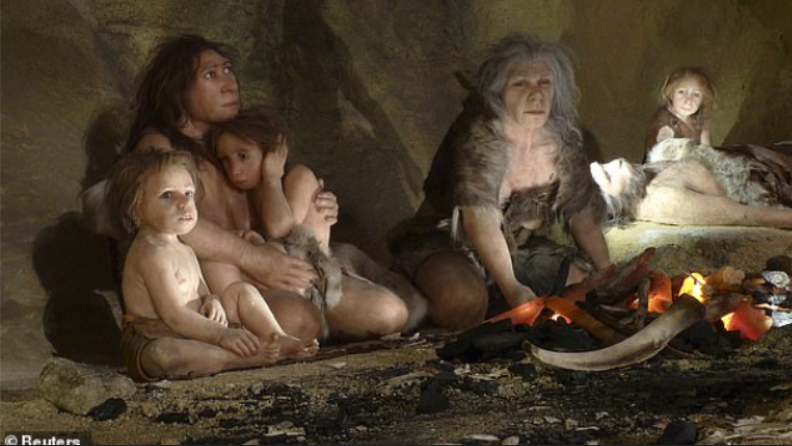Neanderthals might have become extinct about 40,000 years ago, but modern humans still carry some of the archaic humans’ gene. It is the an outcome of interbreeding with the Neanderthals thousands of years ago. However, those trysts between modern humans and the Neanderthals seem to be beneficial for us. Science is now discovering the benefits of Neanderthal genes in our DNA.
A recent study found that Neanderthal genes can confer greater fertility in humans. According to the study in question, published in Molecular Biology and Evolution on May 21, every third woman in Europe carries the gene inherited from the Neanderthal. The receptor for progesterone in these women has been inherited from the Neanderthals. This has resulted in greater fertility, lesser bleeding during early pregnancy and fewer miscarriages among these modern human carriers of Neanderthal genes.
The study was a joint venture between the Max Planck Institute of Evolutionary Anthropology in Germany and the Karolinska Institute, Sweden.
Progesterone is a female sex hormone produced in the ovaries following each month’s ovulation. It plays a crucial role in the menstrual cycle and also in the maintenance of pregnancy. After every month’s ovulation, progesterone helps in thickening the lining of the uterus, thus laying the ground for a fertilized egg.
The research analyzed data from a biobank that has the genetic information of over 4,50,000 participants from across Europe, out of which 2,44,000 are women. 29% of them carry a copy of the progesterone receptor inherited from Neanderthals. The biobank data was compared to the genome sequences of the Neanderthals that were extracted from the remnants of the archaic humans who had been buried in caves and blogs.
Hugo Zeberg, the lead author of the study, commented on the findings and reportedly said: “The progesterone receptor is an example of how favorable genetic variants that were introduced into modern humans by mixing with Neanderthals can have effects in people living today”. Hugo Zeberg is a researcher at the Department of Neuroscience, Karolinska Institute and Max Planck Institute of Evolutionary Anthropology.
Further, the molecular analysis of the women carrying the Neanderthal gene for the receptor showed to have produced more progesterone receptors in the cells. “The proportion of women who inherited this gene is about ten times greater than for most Neanderthal gene variants. These findings suggest that the Neanderthal variant of the receptor has a favorable effect on fertility,” said Hugo Zeberg.
Earlier studies have shown that on an average, Europeans carry more than 500 genetic fragments that were inherited from Neanderthal or other archaic humans. This study is an addition to emerging evidence that proves how modern humans have benefited from the interbreeding with ancient but now extinct human species.





